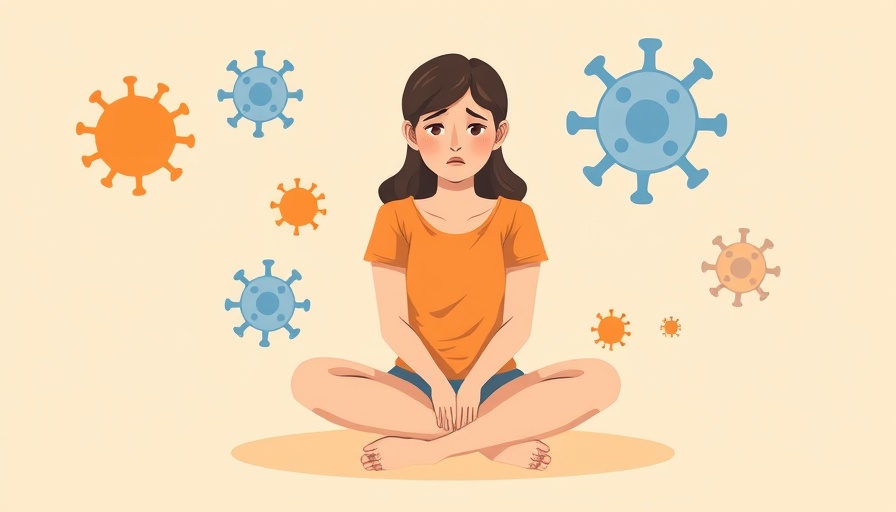
Understanding Anxiety Disorders: A Growing Concern
Anxiety disorders have increasingly become a pressing issue affecting millions worldwide. They manifest in various forms, including generalized anxiety disorder, social anxiety, and specific phobias. Often, these disorders intersect with issues like economic stress, especially in the wake of the COVID-19 pandemic, leading to heightened anxiety among vulnerable populations, including youths, the unemployed, and those facing socioeconomic challenges.
The Hidden Impact of Mental Health on Families and Communities
The ripple effect of anxiety disorders touches not just the individual but also their families and communities. Caregivers often find themselves burdened with the emotional and financial weight of assisting loved ones who struggle with mental health issues. The stigma surrounding mental health can further alienate those seeking help, underscoring the need for supportive environments and community outreach initiatives.
From Coping Strategies to Professional Support: A Spectrum of Solutions
For those grappling with anxiety, a multitude of coping strategies exist, ranging from mindfulness and relaxation techniques to cognitive behavioral therapy and peer support groups. These strategies can be instrumental in managing anxiety symptoms effectively. Additionally, seeking professional support through counseling or psychotherapy can provide tailored care to help individuals navigate the complexities of their experiences.
The Role of Children and Adolescents in Mental Health Conversations
Understanding anxiety in children and adolescents is crucial, especially with the current educational stressors. School-based programs focusing on mental health education and early intervention can empower young individuals to be more resilient. Parental support plays a significant role in fostering coping skills and emotional intelligence, equipping children to manage their mental well-being.
Breaking the Stigma: Sharing Personal Stories
Stories of resilience can help reduce the stigma surrounding mental health issues. By sharing personal experiences, individuals can foster a sense of belonging and community, which is pivotal for recovery. Public awareness campaigns that feature relatable narratives can shift perceptions and encourage those suffering in silence to seek support.
The Future of Mental Health: Integrating Traditional and Modern Approaches
Looking ahead, integrating traditional healing with modern therapeutic practices, such as teletherapy and digital mental health resources, could provide a comprehensive approach to treatment. As mental health policies evolve, ensuring access to care for diverse populations remains paramount. Shared decision-making among healthcare providers and patients can enhance engagement in mental health treatment, driving better outcomes.
 Add Row
Add Row  Add
Add 




Write A Comment